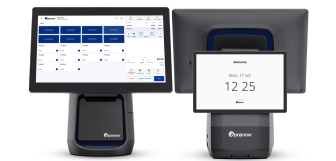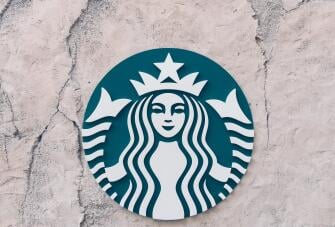Exploring POS software: Insights into its operations, value, and effective decision-making criteria
Software. We all use it. Some for scrolling, some for spreadsheets, some to keep their plants alive (seriously, there’s an app for that).
But when you’re running a hospitality or retail business, the software you choose can really be the determining factor of how successful you're going to be, and how smoothly things will run.
And it’s not just us saying that. The global POS software market is expected to hit $74.7 billion by 2032. That’s a lot of tills, tablets, and touchscreens powering everything from coffee carts to high-end salons.
So today, we're talking about point of sale softwares. What they are, how they works, and what actually matters when you’re choosing one. No jargon. No tech-talk. Just straight-up advice. Let’s get into it.
What is POS software and how does it work?
POS software is the brain behind your checkout. It’s what lets you take payments, track sales, and keep things running smoothly, all from your one screen. Regardless of whether you're using a laptop, tablet, or phone, POS solutions turn your device into a smart, fast checkout tool.
Key features of POS software
Good POS software should do a lot more than just take card payments.
Here’s what to look for:
- Sales tracking
- Product, price, and inventory management
- Customer loyalty tools
- Employee management
- Real-time reporting for customer insights
- Real-time updates
The best software apps also sync with things like delivery platforms, CRM tools, and online ordering systems. That means everything works together, saving you time and stress.
How POS software differs from a POS system
Think of it like this:
The POS software is the brains.
The POS system is the skull with the brain inside. Software + hardware.
So your software can do things like process payments, receipts, and reports. But to do that, it needs hardware, like card machines, receipt printers, barcode scanners, and cash drawers.
Together, that’s your full POS system. Some people call this a POS suite, FYI.
Now, some setups (like Epos Now's Complete Solution, for instance) are all-in-one, others are mix-and-match. It really just depends on your business type and how you like to work.
Integration with Hardware and Third-Party Apps
POS software works best when it integrates with everything else. That means:
- It should easily connect with your hardware.
- It should also sync with your favourite third-party apps.
The goal is to do less manual work more automation, and way fewer tech headaches.
Make sure the POS software you choose has solid integration options. It’ll save you serious time down the line which is something small business owners need.
Why POS software matters for small businesses
Running a small business is tough enough, you don’t need clunky, old-fashioned systems slowing you down. Here's why having the best POS software is really important:
Enhancing customer interactions and loyalty
A good POS system makes shopping feel smoother for your customers.
You can save customer info, track their purchases, and offer loyalty rewards without lifting a finger. Got a regular who always orders the same drink? POS software can remember that.
And, if you’ve got a loyalty app or a CRM tool, your POS software should connect with it. That means more personal service, faster checkouts, and happier customers who keep coming back.
Managing inventory and sales data efficiently
If you’re still counting stock manually, stop. Seriously.
You're going to make mistakes, because we're human, and we make mistakes.
POS software tracks your inventory in real time. Sell one item? It updates automatically. Low on stock? Get a notification before you run out. No more over-ordering. No more stockouts.
And when it comes to sales data, it’s all in one place. You can check what’s selling best, when your busiest times are, and which products aren’t worth reordering. It’s like having your own mini analyst—minus the spreadsheets.
Supporting multiple locations with ease
One shop. Two cafés. Three pop-up stalls. Doesn’t matter.
POS software with good omnichannel capabilities helps you run multiple locations from one central dashboard. You can check sales, track stock, and manage staff across all your sites—without being in five places at once.
Everything syncs automatically, so you stay in control no matter where you are. It’s perfect for growing businesses that don’t want to lose track of the details.
Industry-specific benefits of POS software
The best POS solutions are built to match your business type:
Retail: Inventory tracking, barcode scanning, and promotions
For retail businesses, it’s all about fast checkouts, accurate inventory management, and knowing what’s selling (and what’s just taking up shelf space).
A solid POS system helps you:
- Use a barcode scanner to speed things up at checkout
- Keep real-time stock counts across multiple locations
- Track sales data and spot trends
- Run discounts and promotions with just a few taps
You also get handy business reports and data analytics to boost those profit margins—and it works perfectly with your cash drawer, card reader, and receipt printer.
Hospitality: Tableside ordering, tips management, and customer experience
The hospitality industry moves fast—and a slow system breaks your flow.
A good point-of-sale (POS) software setup can help your team:
- Take tableside orders on a tablet or POS app
- Process payments with mobile wallets or card machines
- Handle tips management and split bills
- Get those all-important real-time updates during rush hours
Plus, you can build customer loyalty with reward programs and track customer insights for regulars. Easy, fast, and smooth—just how hospitality should be.
Healthcare: appointment scheduling and secure payment processing
Yep, even the healthcare sector needs great tech. Whether you’re a dentist, physio, or wellness clinic, the right POS software can help you:
- Manage appointment scheduling
- Accept payments securely with full PCI compliance
- Reduce processing fees with smarter payment tools
- Keep sensitive info safe and backed up
And if you need to sync your POS with third-party apps like booking systems or patient records—it’s all possible with the right integration capabilities.
Other Business Types: Salons, Service Providers, and Pop-Up Shops
Small business owners in salons, pop-ups, and service-based gigs need flexible tech that travels with them.
With cloud-based software you can:
- Accept payments from anywhere using a mobile card reader
- Track sales performance and products with a few taps
- Add services, staff, and prices with zero fuss
- Connect to a friendly customer support team when things go wrong
And whether you’re dealing with initial setup costs, ongoing maintenance expenses, or unexpected fees, it pays to pick a user-friendly POS with clear cost considerations and smart pricing rules. That way, you keep control as your business grows, just like the big guys do.
Simply superior POS software
Our point of sale (POS) software and hardware is built for growing businesses. Fulfill all your point of sale needs and transform your business with a quality point of sale system from Epos Now.
Choosing the right POS software: key criteria
There’s loads of POS software out there. Some are perfect for your business type. Others? Not so much. Here’s what to look for before you spend a cent.
Industry compatibility and customization options
The best POS solutions work with your business, not against it.
If you're running a beauty clinic, for instance, you’ll want appointment booking. If it's a retail store you need strong inventory management and barcode scanner support. In hospitality, look for fast ordering, tips management and transaction processing.
Good point of sale softwares also let you tweak things to fit how you actually work. From menus, products, taxes, staff settings, you name it. Customization matters, especially for small businesses trying to grow and stand out in a crowded world.
Integration capabilities and app ecosystems
Your POS system should never be an island. It needs to connect with your other tools—like accounting apps, CRM, delivery platforms, loyalty systems, and even third-party apps for email marketing.
A solid POS app makes it easy to plug into all of that. That means fewer mistakes, less double-handling, and way better customer insights.
Bonus points if your POS system software gives you real-time updates and works across multiple locations with no drama.
Cost considerations: Setup, maintenance, and hidden fees
Let’s talk money. Or more specifically, what it’s really going to cost?
Look out for:
- Initial setup costs (like hardware bundles or installation)
- Maintenance expenses (monthly fees, software updates)
- Hidden processing fees (those little charges that add up fast)
- Charges for adding more users, locations, or using extra features
Great POS solutions are upfront about their pricing. They also help you keep profit margins healthy with smart pricing rules and flexible plans that grow with you.
Support and scalability as your business grows
Things go wrong. It’s life. So make sure there’s a friendly customer support team to back you up when your card reader stops working or your receipt printer starts spitting gibberish.
Also—don’t just buy for now. Buy for later. You want a point-of-sale (POS) software that scales easily as your business grows. More products, more team members, more locations—no problem.
If you’re a small business owner aiming to become a large company, this part matters. You don’t want to keep switching systems every time you level up.
Common challenges and how to overcome them
Even the best POS software can throw a curveball now and then. But if you know what to watch for, you can dodge the stress.
Avoiding unexpected costs and choosing the right pricing rules
Nothing worse than signing up for a new POS system and getting hit with surprise fees.
Always double-check for:
- Sneaky processing fees
- Extra costs for updates or third-party apps
- Extra training because the user-friendliness isn't there
- Limits on users, features, or transaction volumes
Look for POS solutions that are clear about initial setup costs, maintenance expenses, and exactly how their pricing rules work. Transparency = peace of mind (and healthier profit margins).
Ensuring compatibility with hardware (Card readers, receipt printers, etc.)
Before you sign up, make sure the POS software works with your existing gear.
If it doesn’t you’ll either need to buy new stuff or deal with constant connection issues.
Check the fine print for integration capabilities and always test-run if you can.
Getting help from a friendly customer support team
Glitches happen. The Wi-Fi cuts out, or maybe a sale doesn’t go through. That’s when you really want a customer support team on hand. The best POS providers offer:
- 24/7 live chat or phone help
- Easy how-to guides and FAQs
- Fast replies when something’s broken
Final thoughts: making a smart POS software decision
Here’s our two cents. Picking the right POS software isn’t rocket science, but it is a big deal. If your system’s clunky or confusing, it’s gonna slow you down and cost you money.
You want something that actually works for your business , not some one-size-fits-all mess. Look for stuff that fits your business type, plays nice with your gear, and doesn’t surprise you with hidden fees.
And please, don’t underestimate having a really helpful customer support team. When your card reader crashes during the Friday night rush, you want someone who answers the phone fast, knows their stuff, and doesn’t make you feel dumb.
That’s it from us. Go make it happen!
FAQs:
- What is the difference between POS software and a POS system?
-
POS software is the program that handles sales, payments, and data. A POS system includes the software plus the hardware.
- How does POS software improve small business operations?
-
It speeds up payments, tracks sales and inventory, and helps manage customer data. This makes running your business easier and more efficient.
- Can I use POS software across multiple locations?
-
Yes. Good POS software syncs sales and stock across all your locations in real time. You should learn how to use a POS system from your provider.
- What are the most important features to look for in POS software?
-
Look for easy payment processing, inventory management, integration with other POS apps, clear pricing, and good customer support.
- How much does POS software typically cost?
-
Costs vary. So small businesses will likely pay for setup, monthly fees, and transaction charges. Choose a system with transparent pricing and no hidden fees.



